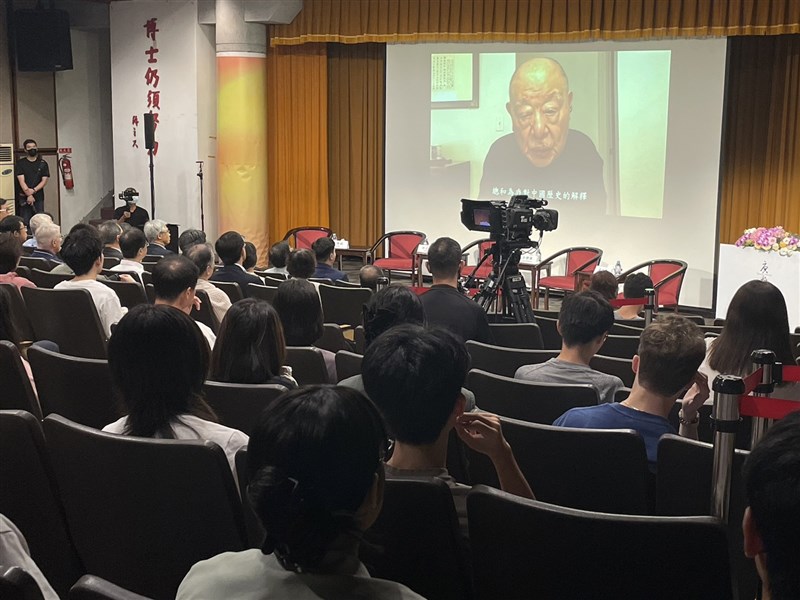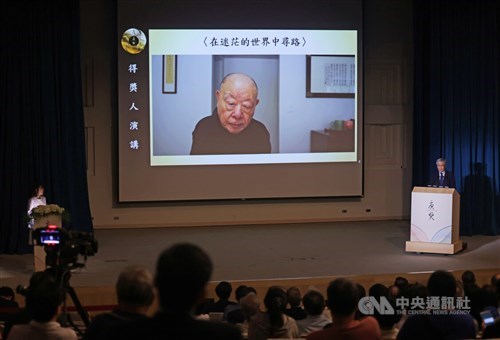TANG PRIZE / Drugs treating diabetes, obesity can do more: Tang Prize laureates
10/01/2024 08:52 PM
Svetlana Mojsov and Jens Juul Holst, two of the laureates of the 2024 Tang Prize in Biopharmaceutical Science, said at a forum in Taichung on Tuesday that the GLP-1-based drugs their research spawned could go beyond managing diabetes and obesity.
(Full text of the story is now in CNA English news archive. To view the full story, you will need to be a subscribed member of the CNA archive. To subscribe, please read here.)
More in TANG PRIZE
-
![Tang Prize winner lauds Taiwan implementation of human rights covenants]() Tang Prize winner lauds Taiwan implementation of human rights covenantsFormer Irish President Mary Robinson on Monday praised Taiwan's efforts to incorporate international covenants on human rights into its domestic law despite not being a signatory.09/30/2024 08:58 PM
Tang Prize winner lauds Taiwan implementation of human rights covenantsFormer Irish President Mary Robinson on Monday praised Taiwan's efforts to incorporate international covenants on human rights into its domestic law despite not being a signatory.09/30/2024 08:58 PM -
![Historian shares research into ancient Chinese myth at Tang Prize forum]() Historian shares research into ancient Chinese myth at Tang Prize forumRenowned Taiwanese-American historian Hsu Cho-yun (許倬雲) on Monday said his work regarding the ancient Chinese myth Da Yu (大禹) was a successful example of integrating social science methodologies into historical research that helped him win the 2024 Tang Prize in Sinology.09/30/2024 01:52 PM
Historian shares research into ancient Chinese myth at Tang Prize forumRenowned Taiwanese-American historian Hsu Cho-yun (許倬雲) on Monday said his work regarding the ancient Chinese myth Da Yu (大禹) was a successful example of integrating social science methodologies into historical research that helped him win the 2024 Tang Prize in Sinology.09/30/2024 01:52 PM -
![Tang Prize Sinology laureate Hsu Cho-yun lauds Chinese culture values]() Tang Prize Sinology laureate Hsu Cho-yun lauds Chinese culture valuesTaiwanese-American historian Hsu Cho-yun (許倬雲), the latest Tang Prize Sinology laureate, highlighted Chinese culture as a source of inspiration for the world, saying they are worth referencing to tackle the current global challenges.09/28/2024 10:55 PM
Tang Prize Sinology laureate Hsu Cho-yun lauds Chinese culture valuesTaiwanese-American historian Hsu Cho-yun (許倬雲), the latest Tang Prize Sinology laureate, highlighted Chinese culture as a source of inspiration for the world, saying they are worth referencing to tackle the current global challenges.09/28/2024 10:55 PM
Latest
-
Culture
Mandopop singer Sun Yanzi to perform at Taipei Dome in May
03/03/2026 10:22 AM -
Society
Heavy rain advisory in effect for Nantou County
03/03/2026 10:16 AM -
Society
Taiwan headline news
03/03/2026 09:57 AM -
Business
Taiwan shares open higher
03/03/2026 09:06 AM -
Politics
Two Taiwanese stranded in Israel amid conflict reach Jordan
03/02/2026 09:02 PM


